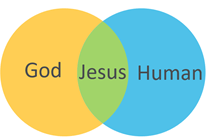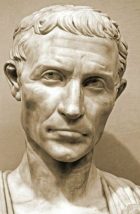Then the Jews began to complain about him because he said, “I am the bread that came down from heaven.” They were saying, “Is not this Jesus, the son of Joseph, whose father and mother we know? How can he now say, ‘I have come down from heaven’?” Jesus answered them, “Do not complain among yourselves. No one can come to me unless drawn by the Father who sent me; and I will raise that person up on the last day. It is written in the prophets, ‘And they shall all be taught by God.’ Everyone who has heard and learned from the Father comes to me. Not that anyone has seen the Father except the one who is from God; he has seen the Father. Very truly, I tell you, whoever believes has eternal life. I am the bread of life. Your ancestors ate the manna in the wilderness, and they died. This is the bread that comes down from heaven, so that one may eat of it and not die. I am the living bread that came down from heaven. Whoever eats of this bread will live forever; and the bread that I will give for the life of the world is my flesh.”
The Jews then disputed among themselves, saying, “How can this man give us his flesh to eat?” So Jesus said to them, “Very truly, I tell you, unless you eat the flesh of the Son of Man and drink his blood, you have no life in you. Those who eat my flesh and drink my blood have eternal life, and I will raise them up on the last day; for my flesh is true food and my blood is true drink. Those who eat my flesh and drink my blood abide in me, and I in them. Just as the living Father sent me, and I live because of the Father, so whoever eats me will live because of me. This is the bread that came down from heaven, not like that which your ancestors ate, and they died. But the one who eats this bread will live forever.” He said these things while he was teaching in the synagogue at Capernaum.
When many of his disciples heard it, they said, “This teaching is difficult; who can accept it?” But Jesus, being aware that his disciples were complaining about it, said to them, “Does this offend you? Then what if you were to see the Son of Man ascending to where he was before? It is the spirit that gives life; the flesh is useless. The words that I have spoken to you are spirit and life. But among you there are some who do not believe.” For Jesus knew from the first who were the ones that did not believe, and who was the one that would betray him. And he said, “For this reason I have told you that no one can come to me unless it is granted by the Father.”
Because of this many of his disciples turned back and no longer went about with him. So Jesus asked the twelve, “Do you also wish to go away?” Simon Peter answered him, “Lord, to whom can we go? You have the words of eternal life. We have come to believe and know that you are the Holy One of God.” Jesus answered them, “Did I not choose you, the twelve? Yet one of you is a devil.” He was speaking of Judas son of Simon Iscariot, for he, though one of the twelve, was going to betray him. – John 6:41-7
~~~~~~~~~~~~~~~~~~~~~~

There’s an old, old saying: you are what you eat – meaning if you eat healthy, you’ll be healthy.
Of course it isn’t meant to be taken literally, as in, if I eat broccoli I’ll turn into a broccoli stalk. The saying is metaphorical. And it could be applied very generally, as in, whatever we take into ourselves becomes part of us. This includes beautiful things like nature, or the love of family and friends, or the friendship we have with animals. And it includes things that aren’t so beautiful, like slasher movies or pornography or even advertising – which becomes part of us without us even being aware it’s happening.
In so many ways, we are what we consume. And in a consumer culture, that’s something to be aware of and to keep an eye on.
The saying you are what you eat also gives us a place to begin to understand what Jesus is talking about in this passage from John. The passage is difficult for a lot of reasons. Probably the biggest difficulty comes because Jesus is deliberately challenging people’s assumptions about faith. Everything people think they know about God and how to worship God is being called into question – and that’s true both for the people listening to him back then AND for us reading it today. Jesus is tearing down all the false teachings and little tiny idolatries that sneak into religion and get in the way of our relationship with God.
So the teaching of Jesus in this week’s passage is difficult. When people heard what Jesus had to say, some of them who had been following him for a year or two turned and walked away. But these are words all of us need to hear, myself included, and as the disciples said, “Lord you have the words of eternal life.”
There are three points Jesus makes that I want to draw out today:
- Jesus says The prophets teach us that “all shall be taught by God.”
In verse 45 Jesus says: Anyone who hears from God and “puts their minds to it” ends up coming to Jesus. Notice that the first action is God’s: no one can come to Jesus “unless the Father draws him.” We like to think we’re the ones making the choice – and how many times have we heard preachers say things like “make your decision for Jesus today!” But Jesus says the first move is God’s.At this point anyone reading who believes in predestination is cheering. Not.So.Fast. The very next thing Jesus says is “put your mind to it”. The whole sentence is: “All who have heard from my Father and learned” – and the Greek word for learned here is ‘mathon’, the word we get mathematics In other words, we need to study. Think. Yes, we have to hear from God first, but then we have to think on what God says, we have to put some skin in the game. A relationship takes two people. As the writer of Hebrews says, “Today, if you hear his voice, do not harden your hearts…” (Heb 3:15) Our hearts need to be open to God, and our minds need to be engaged.
- Jesus says in verse 47 that whoever believes has eternal life. Does this mean we will not pass through death? No. Even Jesus passes through death before entering eternal life. But faith is the foundation of entering into God’s kingdom.
- The key is this – and this is Jesus’ third point – Jesus says: “I am the living bread that came down from heaven; whoever eats of this bread will live into eternity; and the bread which I will give on behalf of the life of the world is my flesh.”
This is a difficult saying for a lot of reasons. First, talking about eating someone’s flesh is a strange concept even as a metaphor. Second, Jesus is not talking about Holy Communion in this passage. Jesus will teach about communion later on but we’re not there yet. Third, Jesus is stressing that to follow him is more than just intellectually agreeing with what he says. Jesus is not our political candidate or our favorite celebrity and Jesus does not need cheerleaders. The relationship must go deeper.

Jesus’ words also do away with preconceived religious ideas. For the people listening 2000 years ago, when Jesus called himself “the bread from heaven” they would have thought back to the bread their ancestors ate in the wilderness: manna. People in Jesus’ time looked back on those days as a sign of God’s favor on anyone descended from Abraham: God’s chosen people. But they’d forgotten it wasn’t Moses but God who gave the manna. And they’d also forgotten their ancestors’ reaction when they first saw the stuff. They looked at this white flaky substance on the ground and asked: “What is it?” – or in Hebrew “manna”? They called the stuff ‘What Is It’ and that became it’s name! That’s pretty much the same reaction the people are having to Jesus. “What’s he talking about? Doesn’t he come from Nazareth? And aren’t we saved because we have the Law of Moses and we’re God’s people? What’s he talking about Bread from Heaven? What is it?”
When Jesus talks about his ‘body and blood’ he’s talking about his own humanity, his own human nature. Jesus challenges us to see him and know him for what he truly is: fully God and fully human. He came from heaven, was sent to earth, and we need to take into ourselves both his godly nature and His human nature.
And then by the power of the Holy Spirit we become God’s children. As we grow in the faith – and as we pass from this life into the next – we take on a dual nature similar to that of Jesus. Jesus calls us brothers and sisters for a reason. This is a greatness and a majesty and a mystery that’s almost too much for us to conceive. But unless we grasp it and wrestle with it, we do not have life within us.
This is pretty much the point at which the disciples say: “Lord, this teaching is hard. Who can accept it?” And Jesus answers, “The spirit gives life; the flesh is useless; my words are spirit and life. And yet there are some who do not believe; for this reason I tell you no one can come to me unless it is granted by the Father.”
Jesus is giving his disciples the opportunity to recommit themselves. At the same time he’s pointing out there is a snake in the grass. The disciples learned later he was talking about Judas. It seems impossible, doesn’t it, that Judas, one of the twelve, who witnessed every miracle, who heard every word, who ate with Jesus, who was sent out by Jesus to preach and to heal, ended up betraying him? Proof again that saving faith is a combination of God’s call and human response – both have to happen.
So speaking metaphorically, we must eat the flesh and drink the blood of Jesus – that is, take into ourselves a sense of both his divine and human reality… and bring his reality and his truth into ourselves and make it part of us. John’s message isn’t easy to grasp, but these are the words of eternal life. Let’s put our minds to it. AMEN.

















 Somewhere around 600BC (give or take a few decades) the prophet Daniel wrote these words from exile in Babylon. The words seem very timely as our season of Lent and repentance comes to a close this year:
Somewhere around 600BC (give or take a few decades) the prophet Daniel wrote these words from exile in Babylon. The words seem very timely as our season of Lent and repentance comes to a close this year: